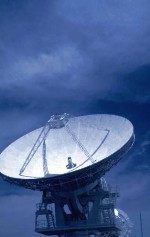| The
Purpose of Science |
Home |
Science for me, and for the vast
majority of respectable scientists, is not about the secrets of nature or even
about truths. Science is simply the method we use to try and postulate a minimum
set of assumptions that can explain, through a straightforward logical
derivation, the existence of many phenomena of nature.
The Law of Conservation of Energy of physics is not truth. It is
just an assumption that is valid in explaining a tremendous amount of natural
phenomena. Such an assumption can never be proven since an infinite number of
phenomena that can be explained by it does not prove its universal application.
On the other hand, it can be disproved by just a single phenomenon that cannot
explain the assumption. This disproving does not detract from the validity of
the assumption. It just highlights the need or even the existence of another
assumption that is more valid. This is the case with the assumption of
the conservation of energy which was replaced by Einstein's more global - more
valid - postulation of the conservation of energy and mass. Einstein's
assumption is not true to the same extent that the previous one was not
"true".
--- Eliyahu Goldratt, "The Goal" (2nd Revised Edition), North
River Press, Introduction to the Revised Edition. |

|

 |
Science is the century-old endeavor
to bring together by means of systematic thought the perceptible phenomena of
this world into as thorough-going an association as possible.
...For science can only ascertain what is, but not what should
be, and outside of its domain value judgments of all kinds remain necessary.
...Although it is true that it is the goal of science to discover
rules which permit the association and foretelling of facts, this is not its
only aim. It also seeks to reduce the connections discovered to the smallest
possible number of mutually independent conceptual elements.
...Science is the attempt to make the chaotic diversity of our
sense-experience correspond to a logically uniform system of thought.
...For the scientist, there is only "being," but no wishing,
no valuing, no good, no evil; no goal.
--- Albert Einstein, "Out of My Later Years" (Revised Edition), Bonanza
Books, pp. 24, 25, 29, 98, 114. |
Science means, sometimes, a special method of
finding things out. Sometimes it means the body of knowledge arising from the
things found out. It may also mean the new things you can do when you have found
something out, or the actual doing of new things.
...Scientist take all those things that can be analyzed by observation, and thus
the things called science are found out. But there are some things left out, for
which the method does not work. This does not mean that those things are
unimportant. They are, in fact, in many ways the most important. In any decision
for action, when you have to make up your mind what to do, there is always a
"should" involved, and this cannot be worked out from "if I do
this, what will happen?" alone. You say, "Sure, you see what will
happen, and then you decide whether you want it to happen or not." But that
is the step the scientist cannot take. You can figure out what is going to
happen, but then you have to decide whether you like it that way or not.
--- Richard P. Feynman, "The
Meaning of It All: Thoughts of a Citizen-Scientist", Helix Books,
pp. 5, 16-17.
| Science is the design or conduct of
reproducible experiments to test how nature works, or the creation of
theories that can themselves be tested by such experiments. Science is
also the orderly observation of events that cannot yet be manipulated,
and, ultimately, the testing of many different such observations as the
basis for theories to explain the events.
This makes science the one human activity
that seeks knowledge in an organized way. It's not the knowledge that's
organized, it's the seeking. Science doesn't guess, doesn't hope, doesn't
wish, doesn't trust, doesn't believe.
Science seeks.
It's the search that makes science so
powerful and so exciting. Science does add to our store of knowledge, but
some of the knowledge it adds turns out to hurt more than it helps.
Science does lead to new products, some of which prove not to be so good,
either. It's the seeking that makes science what it is.
Seeking is a uniquely humble human
experience. It doesn't say I know, it says I need to find out. It doesn't
declare one thing better than another, it merely describes each thing as
it finds it. It doesn't tell anyone how to do anything, it merely
discovers how nature does things.
--- Don Radler, Editor,
UniSci.com (Oct. 2001)
|
When the Lord created the world and
people to live in it - an enterprise which, according to modern science, took a
very long time - I could well imagine that He reasoned with Himself as follows:
"If I make everything predictable, these human beings, whom I have endowed
with pretty good brains, will undoubtedly learn to predict everything, and they
will thereupon have no motive to do anything at all, because they will recognize
that the future is totally determined and cannot be influenced by any human
action.
On the other hand, if
I make everything unpredictable, they will gradually discover that there is no
rational basis for any decision whatsoever and, as in the first case, they will
thereupon have no motive to do anything at all. Neither scheme would make sense.
I
must therefore create a mixture of the two. Let some things be predictable and
let others be unpredictable. They will then, amongst other things, have the very
important task of finding out which is which."
--- E. F. Schumacher, "Small is
Beautiful"
more science...
